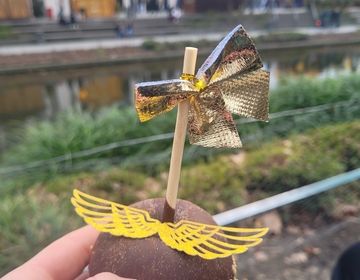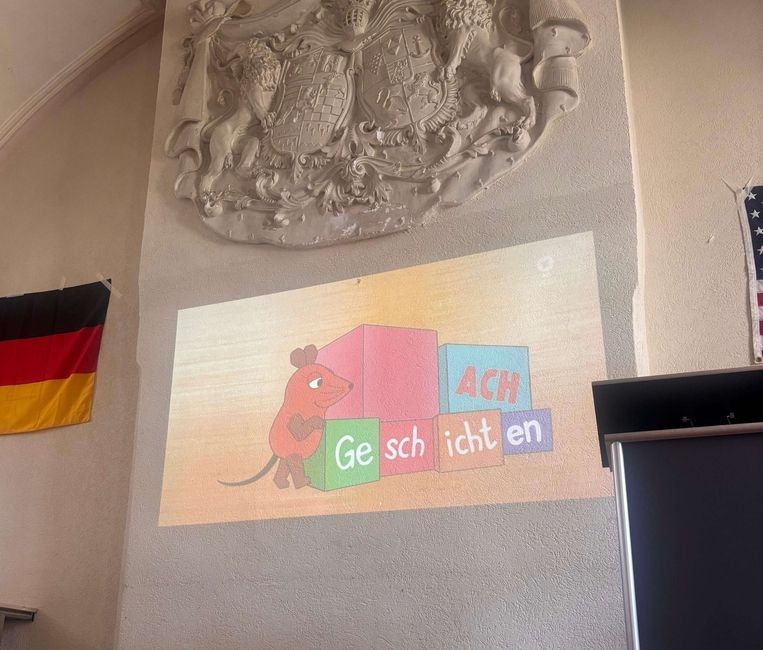The Purpose of Language Camp | In Preparation for Germany
Dominick is an American student studying in Germany as part of the CBYX (Congress-Bundestag Youth Exchange) scholarship exchange program.
Language camp: It's the month when students from the tip of Maine to the Caribbean Islands come to refine their conduct and learn about German cultural awareness.
What is the purpose of a language camp? Knowing the bounds of it will help you best understand how it fits into your exchange year.
First, language camp is to learn German.
Next, it’s to learn about culture and the logistics of your exchange year.
It’s mostly instructional, but we did get some chunks of free time here and there for leisure. While at camp, people would go on walks to the nearby town and play sports with the school-age kids. Take this time to focus on strengthening your vocabulary and resting as necessary. That sounds like it’ll induce FOMO, since everything feels so new and worth exploring, but don’t worry. You'll have plenty of time to ride all the trains and eat dampfnudel once you get to your host community.
Take time to exist in your own world. Everyone’s coming with different opinions, expectations, levels of open-mindedness, and comfort zones. Some people are out of their element with such a big change, and everyone is handling it differently. Your experience at language camp is certainly influenced by those around you, and the people around you can be unpredictable. Some people came to learn, some people came to socialize, and some people came to maximize their independence. All of those are valid reasons to study abroad.
Just know that every student is different, and everyone’s experiences are through the lens of their own perspective, whether that be positive or negative. Don’t compare your use of your time to other people’s. Use this time as you see fit. Learn as you need to. Give yourself space to breathe and take it all in. Lots of unconscious changes can happen within yourself and others, so account for that and take it easy at camp. It’s the best way to keep good vibes among your colleagues and make friends.
Something else to note is that being independent does not equal being alone. The program literature mentions your “camp support system” a few times, and you may be looking to maximize camp by making a really secure network among your peers. The program itself also recommends not constantly calling your family back home, so that you don’t get massively homesick, which unintentionally adds to the previous sentiment.
The truth is, these are all students who have no formal training and have as much to learn as you do. When the camp started, I was curious about what that system would look like. I imagined language camp as a sort of summer camp that would have a magic bonding moment, but it’s more comparable to school, since there are a lot of class sessions and small groups.
Don’t neglect to talk to your home support system. They’ve been with you the last (almost) two decades of your life, so don’t forget them abroad or think that some new people you just met can meet all those same needs. Language camp is a great place to find the right balance you need for success, so embrace the discomfort and give yourself the accommodation you need.
I think the best strategy is the simplest one. Just chill out. Don't be doing too much, especially so soon. There are all sorts of life lessons you can learn, but in my eyes, your exchange year hasn't even really started yet, so keep your expectations flexible and just ride it out. Don't worry about missing out on anything from language camp or thinking your year will be like anyone else’s. Instead, look forward to your host community, and remember the saying, “Slow is smooth, and smooth is fast.”
This was a pretty analytical view of language camp. Overall, I had a good time! Check out my other blog posts to read more.
Related Posts

Traveling from Germany to Luxembourg
Traveling within Europe is almost too easy! In the U.S., I can drive for house without making it out of the state. But from Germany, other countries are a mere jump away!

German Holiday Traditions: Christmas Camels?
I went to the Christmas market expecting the familiar comforts I’ve come to associate with December here in Germany.

A Winter Wonderland: Germany's Christmas Markets
I pull up the hood of my jacket to block the biting cold winter air, walking past the auto barricades and into the Christmas market.

